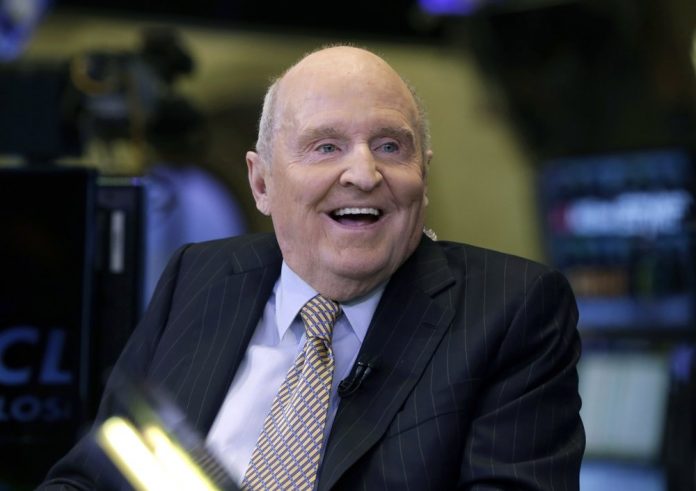Jack Welch, a railroad conductor’s son who became chairman and CEO of General Electric and led it for two decades, growing its market value from $12 billion to $410 billion, has died. He was 84.
Welch died late Sunday at home, surrounded by his wife, Suzy, and family, and his beloved dogs nearby. The cause of death was renal failure, his wife said Monday.
With a determination to win by busting up bureaucratic complacency, Welch earned two titles — “manager of the century,” and “Neutron Jack,” the latter for slashing tens of thousands of jobs. Under his leadership, GE became the world’s most valuable company, after Microsoft. Its fortunes later turned south.
While at the helm, Welch bought and sold scores of businesses, expanding the industrial giant into financial services and consulting. GE Capital Bank was founded seven years into his tenure. His acquisitions included RCA — then-owner of NBC — and Kidder Peabody, the brokerage that became entangled in an insider trading scandal.
He also streamlined the conglomerate’s bloated bureaucracy by giving managers free rein to make changes they deemed beneficial to the bottom line.
He invented the “vitality curve,” in which managers were ranked into three groups. The top 20% “A” group was “filled with passion, committed to making things happen.” The “vital” 70% “B” group was essential to the company and encouraged to join the A’s. Then there was the bottom 10% “C” group. “The underperformers generally had to go,” Welch said in his 2001 book, “Jack: Straight From the Gut.”
According to the book, “the workforce went from 411,000 to 299,000 during his first five years as chief. With such cuts, he acquired the derisive moniker named after the neutron bomb, which was designed to kill multitudes without destroying cities.
All Content & Images are provided by the acknowledged source
